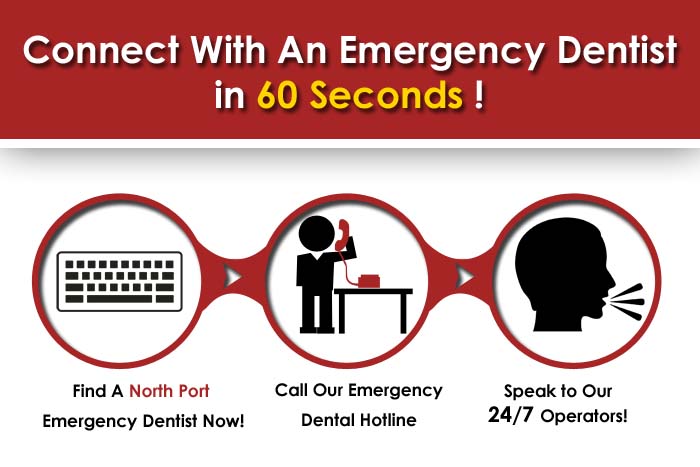Emergency Dental Guide: Solve Tooth Pain Now

Tooth pain can be debilitating, affecting every aspect of your life, from your ability to focus at work to your enjoyment of simple pleasures like eating and sleeping. It’s a universal health issue that demands immediate attention, not just for relief but also to prevent further complications. When faced with tooth pain, it’s crucial to understand the potential causes, the urgency of the situation, and the steps you can take to alleviate your discomfort and address the underlying issue.
Understanding Tooth Pain
Tooth pain, or dental pain, can stem from a variety of sources, each with its own level of severity and implications for your oral health. Common causes include:
- Tooth Decay: One of the most prevalent causes, tooth decay can lead to cavities, which are essentially holes in your teeth. If left untreated, these cavities can reach the pulp of the tooth, where the nerves are located, causing pain.
- Gum Disease: Inflammation of the gums (gingivitis) can lead to more severe conditions like periodontitis, where the gums pull away from the teeth, forming pockets that can become infected.
- Cracked Tooth: A tooth can become cracked due to various reasons such as teeth grinding, biting on hard foods, or trauma. Depending on the depth of the crack, it can be extremely painful, especially when consuming hot or cold foods and drinks.
- Abscess: A severe infection that leads to the accumulation of pus, usually at the tip of the root. It’s a dental emergency that requires prompt treatment to avoid spreading the infection.
Assessing the Urgency
Not all tooth pain is created equal. While some cases might allow for a brief delay in seeking professional help, others are emergencies that require immediate attention. Here are some scenarios that necessitate urgent dental care:
- Severe Pain: If your tooth pain is severe and interferes with your daily activities, it’s a sign of a serious underlying issue.
- Swollen Face or Gums: Indicative of an infection, facial or gum swelling can be a sign of an abscess, which needs urgent treatment.
- Fever: Accompanying your tooth pain with a fever suggests the presence of an infection that could spread if not addressed promptly.
- Bleeding: Oral bleeding, especially if heavy or persistent, requires immediate dental evaluation.
Steps to Alleviate Tooth Pain
While it’s essential to visit a dentist for a proper diagnosis and treatment, there are some interim measures you can take to ease your discomfort:
- Rinse with Warm Salt Water: Several times a day, rinse your mouth with warm salt water to reduce swelling and kill bacteria.
- Cold Compress: Applying a cold compress to the outside of your cheek near the aching tooth can help reduce pain and swelling.
- Over-the-Counter Pain Relievers: Ibuprofen or acetaminophen can provide temporary relief from toothache pain. Always follow the recommended dosage instructions.
- Clove Oil: Known for its numbing properties, applying a small amount of clove oil to a cotton ball and placing it on the affected tooth can offer temporary pain relief.
Navigating Emergency Dental Care
In the event of a dental emergency, having a plan in place can make all the difference in receiving timely care. Here are some steps to follow:
- Contact Your Dentist: Even if it’s after hours, many dental offices have emergency contact numbers or services.
- Visit an Emergency Dental Clinic: If your regular dentist is unavailable, consider visiting an emergency dental clinic or an urgent care facility that offers dental services.
- Emergency Room: In severe cases, such as significant trauma, heavy bleeding, or signs of infection like swelling and fever, you may need to visit the emergency room.
Preventive Measures
Prevention remains the best approach to dental health. Regular dental check-ups, a balanced diet low in sugars, and good oral hygiene practices (such as brushing your teeth at least twice a day and flossing once a day) can significantly reduce your risk of developing issues that lead to tooth pain.
Conclusion
Tooth pain, while common, should never be ignored. Understanding the causes, recognizing the signs of urgent situations, and knowing how to temporarily alleviate discomfort are crucial. However, professional dental care is essential for both relief and to address the underlying cause, preventing more severe and costly complications down the line.
What are the most common causes of tooth pain?
+The most common causes of tooth pain include tooth decay, gum disease, cracked tooth, and abscess. Each of these conditions requires different treatments and levels of urgency.
How can I relieve tooth pain temporarily?
+You can temporarily relieve tooth pain by rinsing your mouth with warm salt water, applying a cold compress to the outside of your cheek, using over-the-counter pain relievers, and applying clove oil to the affected tooth.
When should I seek emergency dental care?
+You should seek emergency dental care if you experience severe tooth pain, swelling of the face or gums, fever, or bleeding. These are signs of serious conditions that require immediate attention.
How can I prevent tooth pain?
+To prevent tooth pain, practice good oral hygiene by brushing your teeth at least twice a day and flossing once a day. Regular dental check-ups and a balanced diet low in sugars are also crucial for maintaining good oral health.
What should I do if I have a dental emergency and my dentist is unavailable?
+If you have a dental emergency and your dentist is unavailable, contact an emergency dental clinic or visit an urgent care facility that offers dental services. In severe cases, you may need to visit the emergency room.
